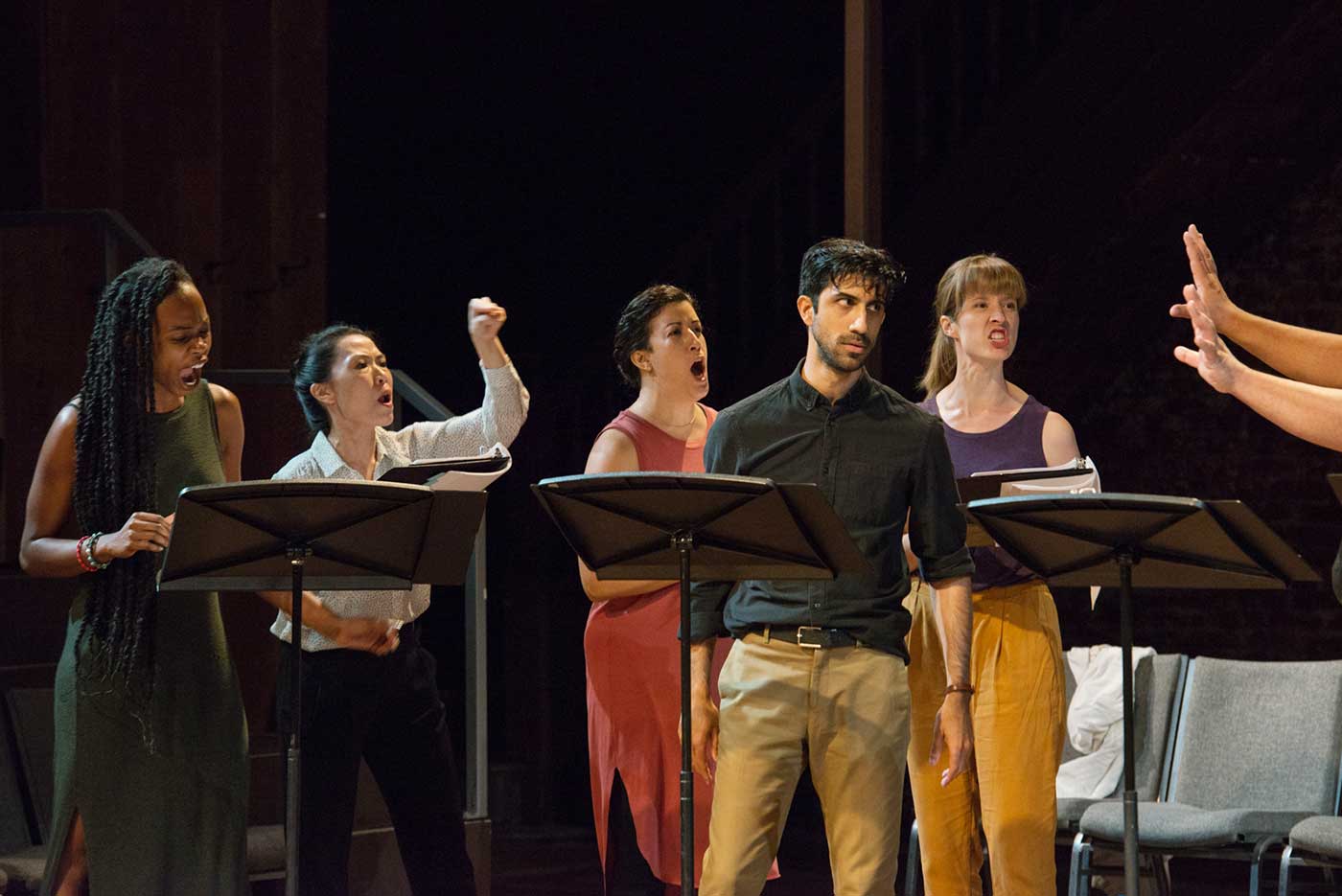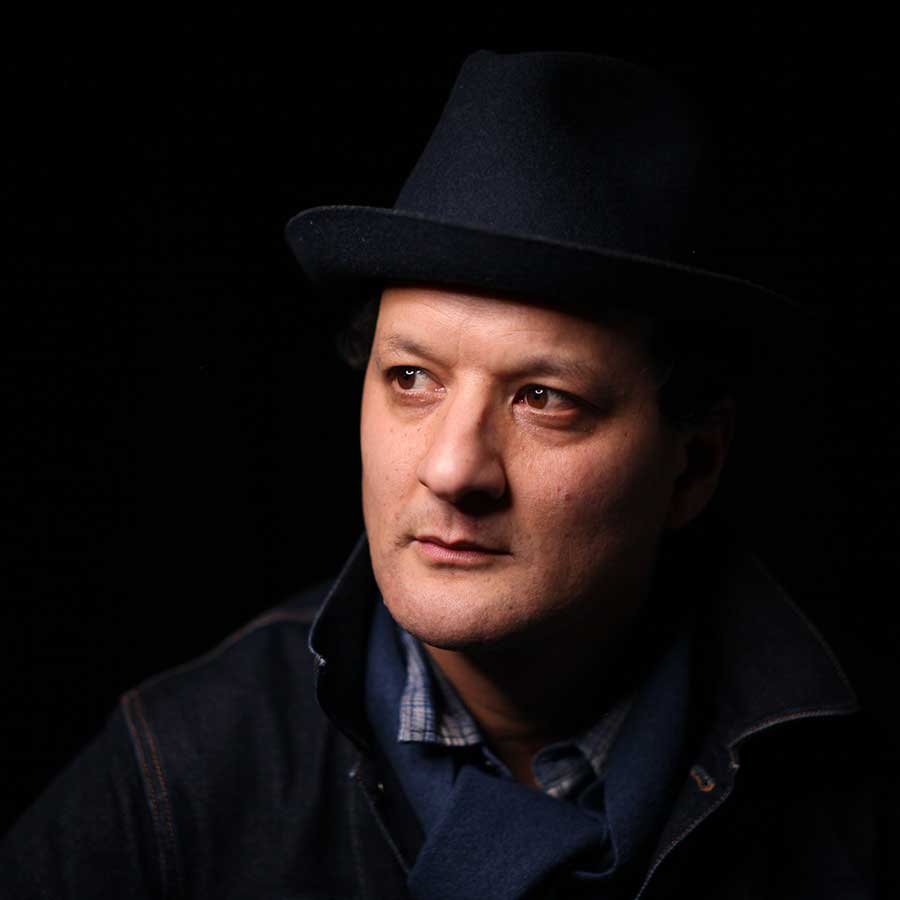Time to Read: 7 minutes
Banner Photo: Actors reading CORIOLANUS by Sean San José during the Play On Festival in 2019.
L to R: Fedna Jacquet, Vanessa Kai, Sol Marina, Sathya Sridharan, and Lisa Kitchens.
When people think of Shakespeare, they picture the dramatic poet, the raucous comic, and—the genius, solitary artist. Institutions and organizations across the globe to this day tout him as “the greatest writer of all time.”
But we know that Shakespeare wasn’t singular in his discoveries and ruminations. Rather, Shakespeare often wrote his plays alongside contemporaries, if not with them as co-authors. Many of his works were based on previously-written myths, poems, and non-English plays. And, most importantly, he wrote in the language his contemporary audience could understand—an audience who would have more easily understood the innuendos, contemporary references, and political ponderings in his productions. Theater is, and has always been, a communal experience of storytelling. And one key element to storytelling is shared language.
When a story is no longer receivable by audiences, it becomes lost, misunderstood, or gatekept by those who have had the privilege of studying it. Four hundred years after Shakespeare’s time, his plays are still produced and beloved—but it is Play On Shakespeare’s belief that the plays are not fully understood today, nor are they accessible for many. In 2015, Dr. Lue Douthit proposed a commissioning program that would bring contemporary playwrights—with the majority of the commissions helmed by BIPOC and womxn playwrights—into the conversation, to reconnect with Shakespeare and translate his plays into modern verse English. In 2019, those dreams were realized at the Play On Festival, a multi-day reading of Shakespeare’s translated plays.
In the five years since the Festival, we have come a long way: We’ve partnered on more than 55 productions, collaborated with Next Chapter Podcasts which released 13 series based on the translations, continue to host workshops and readings for our partners, and are on our way to publishing all the translations through ACMRS Press. We extend gratitude to the artists who made this all possible: Our playwrights who have shown deference to Shakespeare while bringing his work to audiences who may not have had access to his language before.
The original ask of contemporary playwrights to translate Shakespeare’s work began with one rule: Do no harm.
When asked what piqued his interest in working on a Play On Shakespeare translation, Coriolanus translator Sean San José says he joined the project because, “Lue Douthit asked. Lue is a certified genius, and to have her share any idea with me is thrilling. The fact that it was part of a new initiative was completely inspiring, as Lue is always in the maverick position when it comes to story format and playwriting foundations. I was initially so humbled and hyped. I bypassed the practicality of me—someone not versed in Shakespeare—doing Shakespeare, but that was by virtue of the empowerment I felt by being included in all this by Lue.”
For Yvette Nolan, translator of Henry IV Part I & II, her interest in the project started with her love of Shakespeare himself. “I love Shakespeare. I watched my first Shakespeare—a recorded version of a Stratford production of Julius Caesar—when I was four or five years old. When my mother asked me to tell my father what happened in the story, I told him that Caesar was killed by his friends. ‘And what did Caesar say,’ my mother prompted. ‘Tee hee, Brutus,’ I replied. And I was hooked. My mother spoke three languages: Algonquin, French, and English. My father, an Irish immigrant to Canada, was the best Irish speaker in Ireland when he was in high school. They knew the power of words, and the power of power over words. And Shakespeare, some 400 years on, is proof of that. Who doesn’t want to grapple with that?”
The more people who have access to Shakespeare, the more we can understand, dissect, and further cherish his works.
The original ask of contemporary playwrights to translate Shakespeare’s work began with one rule: Do no harm. This meant playwrights were given the challenge of translating into modern verse English while preserving the rhyme, rhythm, metaphor, meter, imagery, symbolism, rhetoric, and the structure that make Shakespeare’s plays engaging. In her experience working on the translations of Macbeth and Richard III, Migdalia Cruz says, “I have always been a careful writer—chosen all my words precisely and sought the clearest and most economic way to express my intentions. Working with Shakespeare as a literary guide through his sometimes archaic yet fascinating worlds, enriched and supported my love of research, of exacting language, and of poetry. I consider my style of writing poetic realism and I found in Shakespeare an oddly kindred spirit. I would never have sought his work as a touchstone, as Nuyoricans never figure in his plays, but Play On Shakespeare gave me the opportunity to locate my people in his world, and that opened my eyes to the real meaning of inclusion and diversity that people seem to constantly struggle to attain. I think he would have appreciated his inclusion in my world as I appreciated the expansion of my work that entering his world gave me.”
Cruz is not alone in her statement that these translations have opened up the worlds of Shakespeare for more diverse audiences. José says, “I feel the true ‘translation’ I am both committed to, feels most core to what I focused on, and felt throughout was the embodiment of the Shakespeare world for today. [Which is] a very internal component though, because we are not modernizing the setting, story, words, or world on the surface. The Shakespeare story and poetry have always been there, but this is the chance to create a Shakespeare world to vibrate and vividly be seen and heard with a true to life population feels most exciting a foundation of the ‘translation.’ The words are investigated, the world of Shakespeare is intact, but the embodiment of the storytellers is a true translation for me. A world that, in my gut, has always made me feel there was a chasm between my world and Shakespeare’s—the worlds feel closer together now. And for me, it is all about for whom I imagined would be telling these versions—that is to say, this translation would be filled with real peoples, our communities, and culturas. To make it plain, this imagines all the storytellers and characters as the people I needed to hear from and could not see in Shakespeare before. They all are now at the rightful center of telling the same story: the women, the non-binary bodies, the People of Color, the openly Queer, the inmigrantes, the multi-lingual, the citizens of our modern cultures.”
The more people who have access to Shakespeare, the more we can understand, dissect, and further cherish his works. After all, what is more important: Prestige or shared understanding? Nolan writes that clarity of Shakespeare’s works is, for her, the most exciting part of the translations for modern audiences. “Seeing the sudden understanding of the audience: ‘Oh, that was what Shakespeare was saying.’ I love keeping them through the moments that are usually so dense or archaic, moments when they often glaze over that are now clear and (often) funny, that keeps them in the story. I especially love it when they can’t tell what Shakespeare and what Nolan is, when my work is seamless and integrated with his.”
Four hundred years after Shakespeare’s death, his works are still produced with gusto and reverence. And Play On Shakespeare is here to say his work is, indeed, important—important enough that everyone should and can have access to his language. To the playwrights who said “yes” to Play On with us—thank you. What a glorious thing to watch them be in community with Shakespeare, even if centuries apart.
Meet Our Featured Playwrights
Migdalia Cruz
Playwright: Macbeth, Richard III
Yvette Nolan
Playwright: Henry IV – Part 1, Part 2
Sean San José
Playwright: Coriolanus
Learn More About the Featured Translations
Learn More about all the Translations

-

COMEDY is On the Road!
The Acting Company is about to embark on its U.S. tour of THE COMEDY OF ERRORS in a modern verse translation by Christina Anderson, in repertory with August Wilson’s TWO TRAINS RUNNING. -
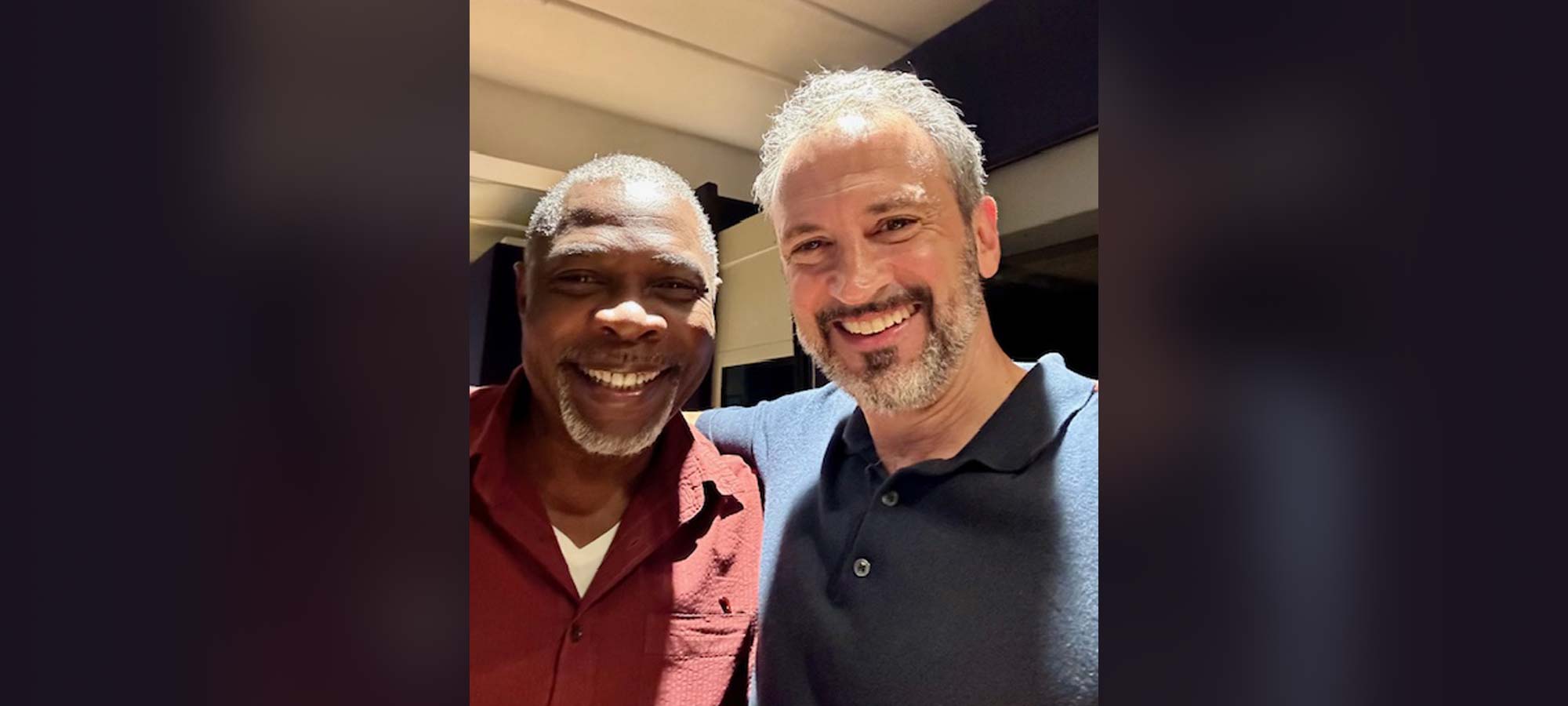
Making Play On Podcasts: An Interview with Michael Goodfriend
Play On Shakespeare interviews Michael Goodfriend, Head of Scripted Fiction at Next Chapter Podcasts, to talk all things Play On Podcasts! -
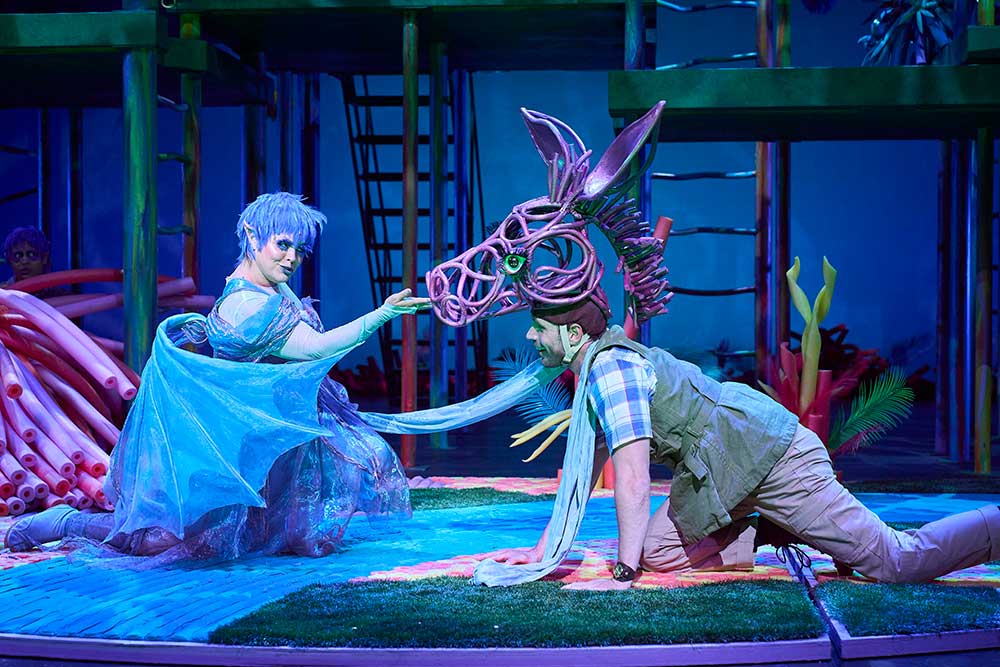
The Language of Midsummer
A MIDSUMMER NIGHT’S DREAM has had multiple productions this year—and one key takeaway has been the benefit of accessible language. -
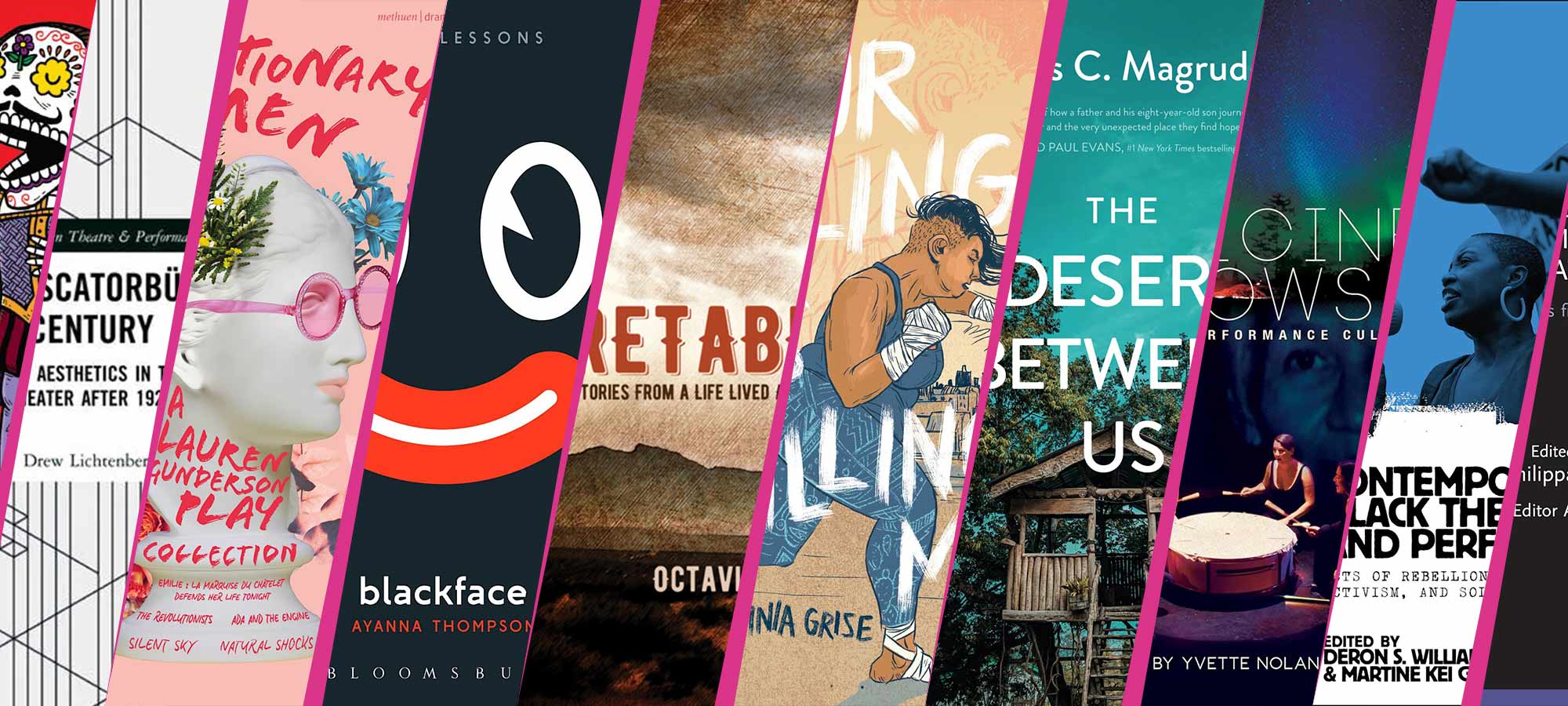
Level Up Your Reading List
This fall, Play On Shakespeare has the perfect reading list for you, with books written by some of our partner artists!

